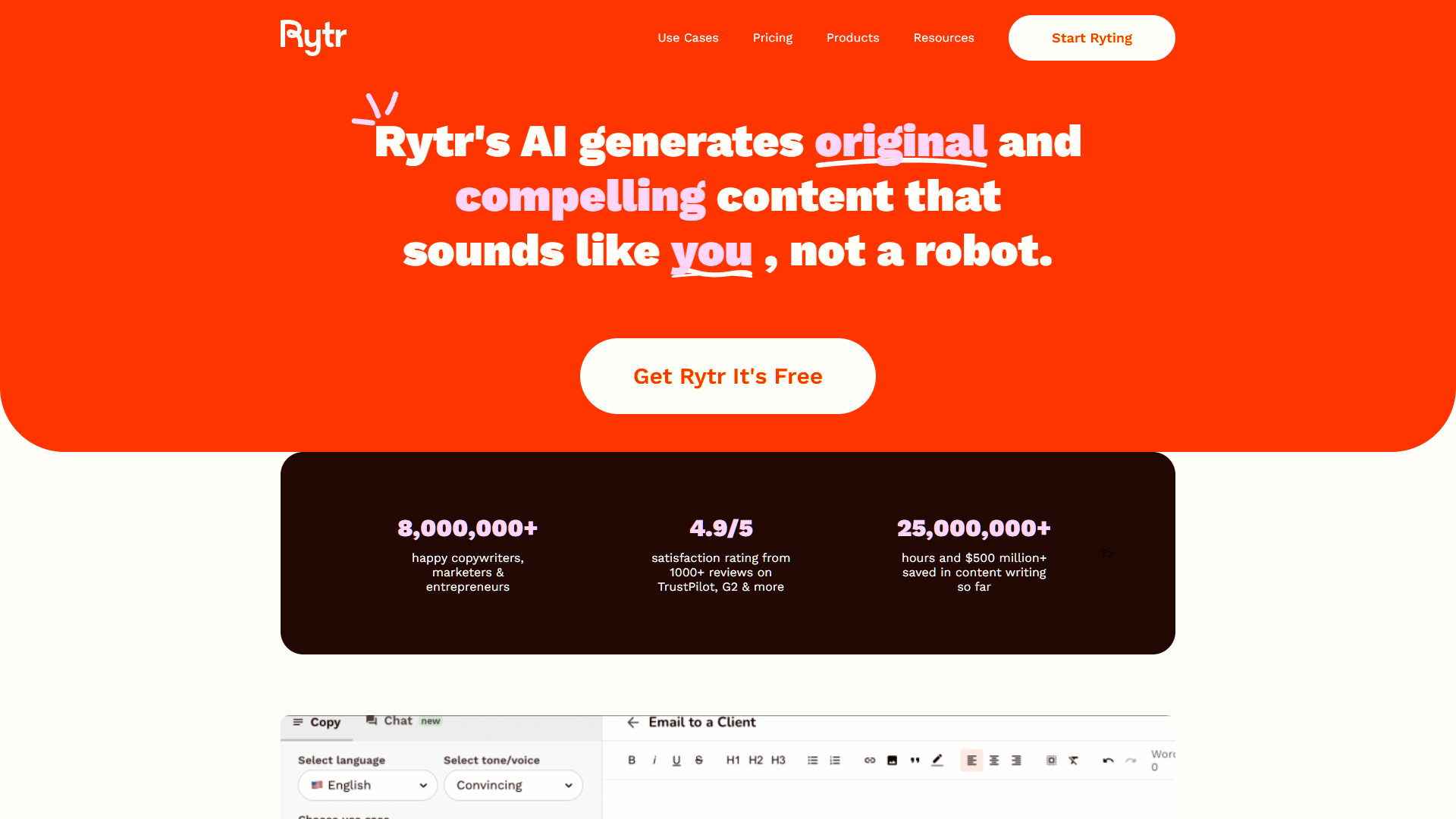Overview
Rytr is an AI-powered writing assistant designed to help users generate high-quality content efficiently across various formats and genres. With its advanced language models and intuitive interface, Rytr can assist in crafting everything from blog posts and emails to marketing copy and social media updates. Users can select from a range of content templates or set custom parameters to guide the AI in producing text that aligns with specific tone, style, and audience requirements.
One of the standout features of Rytr is its ability to adapt to the user's writing style, making the transition between human-written and AI-assisted text seamless. This tool is particularly useful for content creators, marketers, and business professionals looking to enhance their productivity and creativity without compromising on quality. Additionally, Rytr offers built-in plagiarism checks and grammar suggestions to ensure that all output is both original and polished. With its user-friendly design and versatile capabilities, Rytr is transforming the way individuals and teams create written content.
Key features
- Auto text generation: Automatically generates text based on input keywords, saving time and enhancing content productivity.
- Versatile writing styles: Offers a variety of writing styles to suit different types of content, from blogs to formal reports.
- Multiple language support: Supports over 30 languages, making it accessible for global users to create content in their native language.
- SEO optimization tools: Includes features that help optimize content for search engines, improving visibility and reach.
- Plagiarism checker: Ensures the uniqueness of the content by checking against potential plagiarism, maintaining content integrity.
- User-friendly interface: Designed with a simple, intuitive interface that makes it easy for anyone to start creating content immediately.
 Pros
Pros
- Content tone adjustment: Allows users to tweak the emotional tone of the content to better align with the target audience's preferences.
- Real-time collaboration: Enables multiple users to work on the same document simultaneously, facilitating teamwork and faster content creation.
- Data-driven insights: Provides analytics on content performance, helping users understand engagement and optimize future content strategies.
- Customizable templates: Offers a range of templates that can be customized to fit specific content needs, streamlining the creation process.
- Integration capabilities: Easily integrates with other tools and platforms, enhancing workflow and productivity for content creators.
 Cons
Cons
- Limited creative control: Users may find the AI-generated content lacks the nuanced creativity that a human writer offers.
- Dependence on prompts: The effectiveness of the output heavily relies on the quality and specificity of the user's input prompts.
- Generic content issues: Sometimes the content generated can feel generic and may not always align perfectly with brand-specific tones.
- Repetitive phrasing: The AI might reuse certain phrases or structures, leading to repetitive patterns that could affect content uniqueness.
- Subscription cost: Continuous use of the platform requires a subscription, which might be a financial burden for some users or small businesses.











